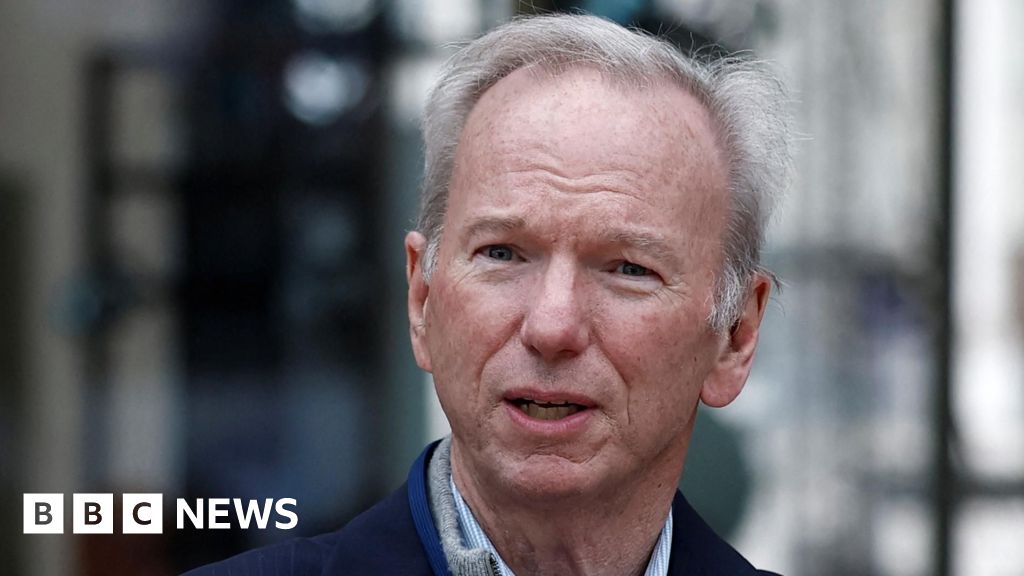AI: A Double-Edged Sword – The Warning from Eric Schmidt
The extraordinary strides in artificial intelligence (AI) have brought excitement and hope for the future. However, such advancements also evoke serious concerns, particularly when it comes to their potential misuse. Eric Schmidt, the former chief executive of Google, recently shared his alarming insights on this topic, expressing fears that AI could fall into the wrong hands—even those of terrorists or rogue states.
The Perils of AI Misuse
In an interview with BBC’s Today programme, Schmidt articulated his worries about entities like North Korea, Iran, or Russia leveraging AI technology for nefarious means, including the development of biological weapons. "The real fears that I have… are not the ones that most people talk about AI—I’m talking about extreme risk," he explained. This perspective shifts the focus from common discussions around AI ethics to a more urgent conversation about the security implications of pioneering technologies.
Calls for Oversight Without Stifling Innovation
To address these risks, Schmidt advocates government oversight of private tech companies involved in AI development. Yet, he cautions against over-regulation that could inhibit innovation. "It’s vital that governments understand what we’re doing and keep an eye on us," he asserted. During his time at Google, he navigated the intricate balance between fostering technological growth and ensuring responsible use. Now, he acknowledges the challenges ahead, especially as powerful industries shape the future of AI.
This sentiment echoes in recent U.S. export controls on microchips—the essential components driving advanced AI systems. Former President Joe Biden’s restrictions aimed at limiting adversarial countries’ access to these technologies highlight the escalating competition in AI research. However, this policy could face reversals depending on future administrations, underscoring the volatile nature of tech governance.
The ‘Osama Bin Laden’ Scenario
Schmidt’s concerns also include the hypothetical risks reminiscent of past terror incidents. Drawing parallels to Osama Bin Laden’s orchestration of the 9/11 attacks, he warns, "Think about someone with an evil goal, who could misuse AI technology to create a bad biological attack." This kind of warfare, augmented by AI, could pose significant threats to global security if not carefully monitored.
Navigating the AI Landscape
Despite the formidable challenges that AI presents, Schmidt remains hopeful about its transformative potential. He observes that many tech leaders have gained a deeper understanding of AI’s implications. Even more, he stresses that the future of AI is largely in the hands of private companies, propelling the discussion about the importance of balanced regulation.
On the global stage, Schmidt pointed out how excessive regulation in Europe could hinder the continent’s ability to innovate. “The AI revolution," he stated, "is not going to be invented in Europe” if the regulatory framework stifles creativity. His insights underscore the need for nimble governance that can adapt to rapid technological advancements while safeguarding public interests.
Protecting the Next Generation
Beyond AI’s global implications, Schmidt is also concerned about its impact on younger generations. Speaking from Paris, he expressed unease about smartphones and their influence on children. "Why would we run such a large, uncontrolled experiment on the most important people in the world, which is the next generation?" he asked. Advocating for moderation, he believes that while technology can be safe, it requires thoughtful introduction and regulation.
Countries like Australia are already moving towards protecting children from potential online harms by instituting restrictions on social media usage for those under 16. However, research suggests that simply banning phones in schools might not yield the desired behavioral improvements, indicating a need for comprehensive solutions.
Conclusion
In today’s fast-paced digital world, the stakes are high when it comes to the responsible use of AI. As Eric Schmidt aptly highlights, while AI has immense potential, its misuse could lead to devastating consequences. We must strive for a balance in regulation that promotes innovation while safeguarding society.
The AI Buzz Hub team is excited to see where these breakthroughs take us. Want to stay in the loop on all things AI? Subscribe to our newsletter or share this article with your fellow enthusiasts.




